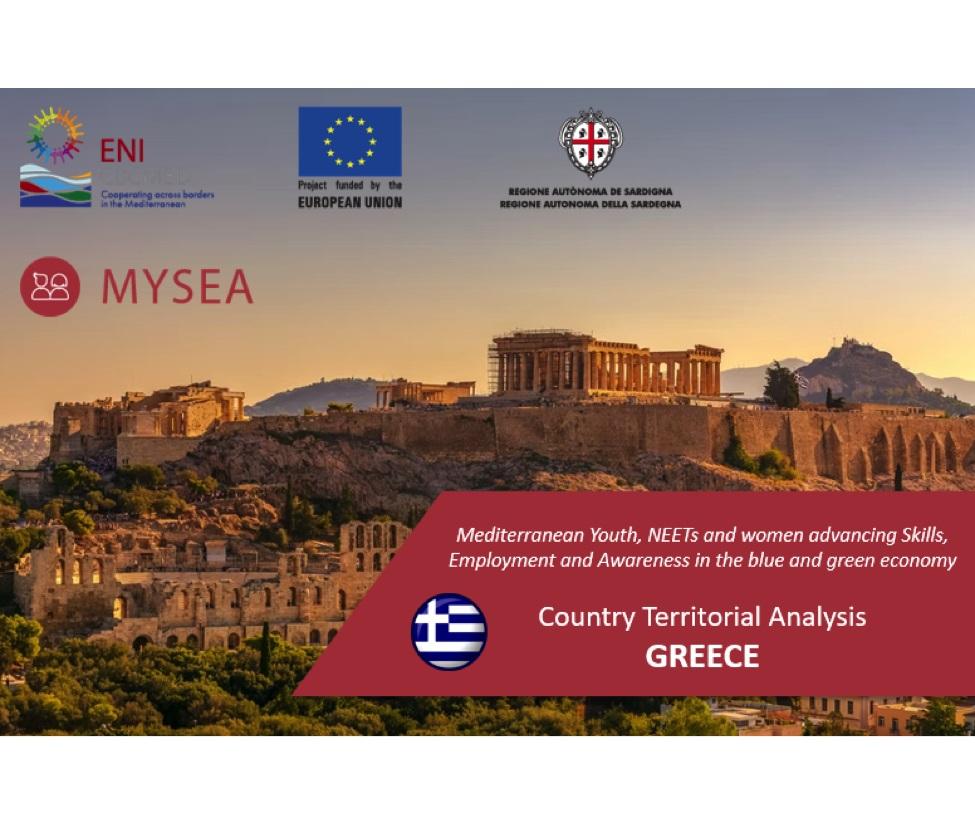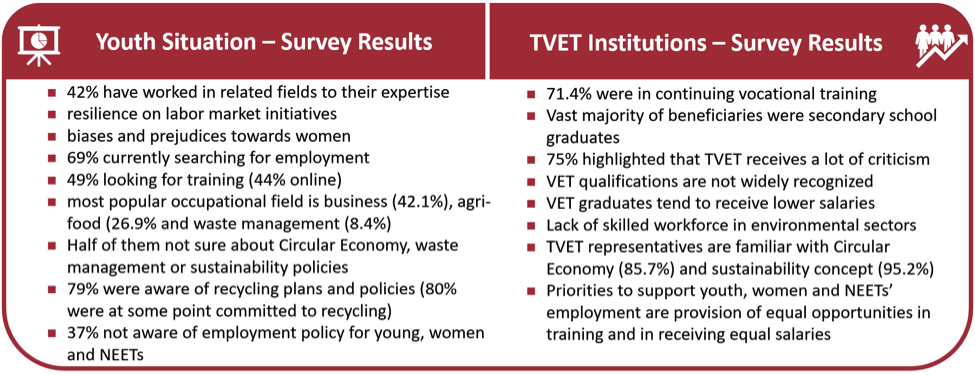MYSEA explores the scene of Green and Blue Economy in Greece to increase employability of youth and women

The Greek Territorial Analysis, realized by MYSEA partner, EUROTRAINING, and based on the methodology developed by the University of Palermo - Department of Agricultural, Food and Forestry Sciences,Italian parnter of MYSEA, is an essential research tool that helps the project to better target workshops and training activities. It reports the situation of young people who are not in Education, Employment or Training (NEETs) and women, focusing on the agri-food and waste management sector in Greece. At the same time, it reports the situation in the field of Vocational Education and Training (VET), along with the offer of training courses in these sectors. In order to have a better analysis, apart from extensive literature review, field research was also conducted with questionnaires and interviews to the interested parties and economic actors. In total, 128 economic actors took part in the survey, with 103 filled questionnaires and 25 interviews, as well as 46 TVET representatives, with 21 filled questionnaires and 25 interviews.
Agri-food. Greek food-beverages and agricultural sectors have a strong European presence, with the employment being remarkably higher than EU’s average (mostly focused in agri-food). Although Greece has significant comparative advantages in the field of agri-food, such as favorable conditions, quality and nutritional value, it also presents structural weaknesses, such as inefficient organization, small farms and low productivity. In order to retain its robustness, the agri-food sector should integrate new technologies, adjust its workforce and support auxiliary policy recommendations towards a sustainable model.
Waste management. The amount of municipal and industrial waste in Greece has risen sharply, with the main method of disposing solid waste is that of landfills. Greece has one of the highest rates of landfilling in EU, but it is important to adapt policies that follow a more circular approach. Thus, specific practices, such as the National Plan for Waste Management (NPWM), have been established to boost innovation in the direction of circular solutions (e.g. waste prevention, recycling, reduction of landfills).
Unemployment. Youth unemployment in 2019 increased to more than double the European average, with Greece ranking among the countries with the highest percentage of NEETs. The main problem in Greece is the inefficient education system and transition to labor market, while one way to tackle this problem would be to connect students more closely with jobs through VET.

Agri-Food and Waste Management Job Market. Most companies are connected to crops (40.7%), agricultural industry (24.7%) and livestock (17.3%), while over half of them participate in additional secondary activities. Due to the dual green and digital transition, most economic actors are interested in training courses, while they are quite unfamiliar with Circular Economy concept, Governmental Sustainability and Waste Management policies. As for recommendations to further increase inclusion of vulnerable youth, actors suggest better connection between labor market and the educational institutions, resolution of gender pay gaps, respect on maternity needs, joint efforts focusing on career days, CV screening and paid internships, mentoring and coaching guidance ,etc.
Building on these findings, MYSEA project aims to align the experience gap and increase the employability of 1 000 young people in 5 Mediterranean countries. Overall, MYSEA plans to deliver 4 cross-borders training curricula, along with on-the-job training internships and micro learning modules, in order to promote social inclusion and provide NEETs and women with the marketable skills to boost their employment and improve their life.
You can find the Greek Territorial analysis at the following link: https://enicbcmed.eu/mysea-country-territorial-analysis-greece
For more information on the project and its activities, visit the MYSEA webpage on the ENI CBC Med website, as well as Facebook, Τwitter, LinkedIn and YouTube.









